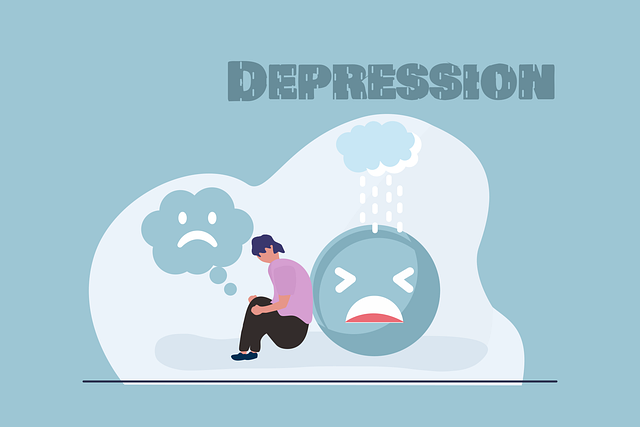In Oregon, particularly in Clackamas County, civil commitment proceedings under state Mental Health Law balance protection for individuals with mental health conditions and public safety. The process starts with a qualified professional filing a petition reviewed by a court commissioner. Understanding the Oregon commitment process, including the right to legal representation, is crucial for defending one's freedoms. Clackamas County offers dedicated advocacy services to guide individuals through complex procedures, ensuring their rights are respected in mental health cases. Robust legal representation and advocacy groups play vital roles in promoting fairness and upholding rights during these proceedings.
In Oregon, civil commitment proceedings play a crucial role in supporting individuals with severe mental illnesses. This article delves into the intricate aspects of these processes, focusing on Clackamas County. We explore mental health law and the rights guaranteed to individuals under it, particularly during commitment. Understanding the Oregon commitment process is essential, especially when seeking legal representation. Additionally, we emphasize the significance of adequate advocacy in safeguarding the rights of those facing civil commitment, ensuring a fair and just system for all Oregonians battling mental health challenges.
- Understanding Civil Commitment Proceedings in Oregon: An Overview
- Mental Health Law and the Rights of Individuals in Clackamas County
- Navigating the Oregon Commitment Process: Steps and Legal Representation
- Ensuring Adequate Advocacy: Supporting Rights in Mental Health Cases
Understanding Civil Commitment Proceedings in Oregon: An Overview

Civil commitment proceedings in Oregon are governed by the state’s Mental Health Law, which outlines a structured process to ensure the rights of individuals with mental health conditions. These proceedings involve a comprehensive assessment and court hearing to determine if an individual meets the criteria for civil commitment, also known as involuntary commitment. In Clackamas County, the commitment process begins with a petition filed by a qualified professional, such as a doctor or licensed clinician, who believes an individual poses a danger to themselves or others due to their mental health condition. This petition is then reviewed by a court commissioner, who may order an emergency detention if there’s a clear and present risk.
The focus of civil commitment proceedings is to balance the rights of individuals with mental health issues while also ensuring public safety. Those facing potential commitment have the right to legal representation and advocacy, which plays a crucial role in defending their freedoms and guiding them through the Oregon commitment process. Legal support can help navigate complex legal procedures, explain rights, and ensure fair treatment throughout the case. Understanding these proceedings and knowing one’s rights is essential for anyone involved in mental health cases in Oregon.
Mental Health Law and the Rights of Individuals in Clackamas County

In Clackamas County, Oregon, mental health law plays a pivotal role in safeguarding the rights of individuals involved in civil commitment proceedings. The county’s advocacy services ensure that those facing involuntary commitment understand their legal options and rights within the Oregon commitment process. This is particularly crucial given the sensitive nature of mental health cases, where proper legal representation can make a significant difference.
Advocates and legal professionals specializing in mental health law are instrumental in guiding individuals through the complex procedures, ensuring their rights in mental health cases are respected. These experts help navigate the Oregon commitment process, providing clarity and support to those who may feel overwhelmed or unsure about their legal standing. Clackamas County’s commitment to these advocacy services underscores its dedication to fair and just treatment for all residents facing mental health challenges.
Navigating the Oregon Commitment Process: Steps and Legal Representation

Navigating the Oregon Commitment Process involves a series of steps that are designed to ensure fairness and due process. It begins with an assessment by a qualified professional who determines if an individual meets the criteria for civil commitment proceedings, based on their mental health status and potential danger to themselves or others. If the criteria are met, the next step is filing a petition in court, which triggers a series of hearings where both parties present evidence and arguments.
In Clackamas County and throughout Oregon, individuals facing civil commitment have a right to legal representation. Qualified advocates specializing in mental health law can provide crucial support, guiding clients through the complex process and ensuring their rights are protected. Legal representation is essential, as it helps to interpret technical terminology, challenge unfair practices, and advocate for the best possible outcome. Effective advocacy can make all the difference in securing a fair resolution and upholding the rights of those involved in mental health cases.
Ensuring Adequate Advocacy: Supporting Rights in Mental Health Cases

Ensuring adequate advocacy is a cornerstone in Oregon’s civil commitment process, especially within the realm of mental health law. Individuals facing voluntary or involuntary commitment proceedings require robust legal representation to safeguard their rights and navigate the intricate Oregon commitment process. Clackamas County, with its bustling legal community, offers critical support to those in need, ensuring that their voices are heard and their interests protected.
Advocacy groups and legal services organizations play a pivotal role in promoting understanding of mental health law and providing assistance throughout these challenging times. Their expertise helps individuals navigate complex procedures, ensuring they receive appropriate care while preserving their civil liberties. Effective advocacy strengthens the commitment process by fostering empathy, respect for due process, and adherence to the principles that underpin rights in mental health cases.
